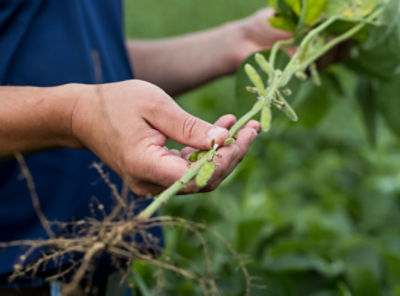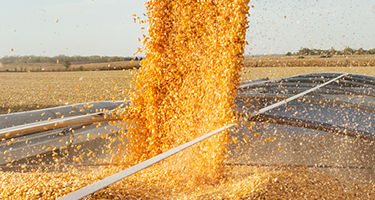What is Herbicide Tolerant Seed Technology?
Herbicide tolerant crops can tolerate herbicides at application rates that would kill non-herbicide tolerant hybrids or varieties of the same crop species. Crops with traits for herbicide tolerance allow farmers to apply herbicides to their crops that they would otherwise be unable to utilize without causing death or unacceptableinjury to that crop.
Importance of Managing Herbicide Tolerant Crops and Weed Resistance to Herbicides
Properly managing herbicide tolerant crop technology is important to preserving the effectiveness and value of the tolerant crop seed and its corresponding herbicides in the future. Growers utilizing herbicide programs that include herbicide tolerant crops can do so on an annual basis, provided the technology is managed effectively. If you have any questions after reviewing this information, please contact your Pioneer sales representative or agronomist.
Weed Resistance Management Best Practices
- The use of herbicide tolerant crops does not limit the grower to use only one herbicide product. Conventional herbicides can and should still be part of the grower's overall weed management system.
- Limit the number of applications of a single herbicide or herbicides from the same mode-of-action family within a single growing season.
- Apply herbicides at labeled rates and at the recommended stage of weed growth as stated on the label.
- Use mixtures or sequential treatments of an effective alternate mode-of-action to control target weeds.
- Use alternative weed management practices, such as crop rotation, mechanical cultivation, delayed planting and weed-free crop seed.
- Clean equipment before moving between fields to minimize the dispersion of weed seed.
- Scout fields after herbicide application to detect weed escapes or shifts. If a potentially resistant weed or weed population has been detected, use available control methods to avoid seed dispersion in the field.
Manage Volunteer Herbicide Tolerant Crops
The seed of some crops can escape harvest, germinate the following year and become "volunteer" weeds in a rotational crop. This can happen regardless of whether the crop seed was herbicide tolerant or not. Many tools are available for managing herbicide tolerant volunteers, but advanced planning is advised to provide the greatest flexibility and success. The best strategies for managing herbicide tolerant volunteers are crop rotation, rotation of herbicides and rotation of herbicide tolerant traits. Properly adjusting harvesting equipment, cultivation and tillage management will also help reduce volunteer plants from previous crops. Plan at least a year ahead when planting a herbicide tolerant crop to make sure you have a weed management plan that will control any herbicide tolerant volunteers using alternate herbicide mode-of-action families and/or tillage for the next crop.
Report Suspected Cases of Weed Resistance to Herbicides
Possible indicators of weed resistance to herbicides include achieving good control of all but one of the labeled weed species in the field by the herbicide and/or failure of repeated applications of the same herbicide to control only that weed species in a field. Be wary that weed control failures can have many causes not related to herbicide resistance. Lack of rainfall to activate pre-emergence herbicides, rainfall right after post-emergence applications washing the herbicide off the plant, cool temperatures, slow growth reducing herbicide activity in the plant, improper application timing, or improperly calibrated application equipment are among the many causes of less than expected herbicide performance. If you suspect a weed control failure is caused by weed resistance to an herbicide you should first contact your herbicide retailer or herbicide manufacturer's representative, and your local Pioneer agronomist, and conduct a thorough investigation that can eliminate other more common causes of poor weed control. Your local Pioneer agronomist will assist you with the additional steps that will be required if weed resistance to the herbicide is believed to be the issue.





